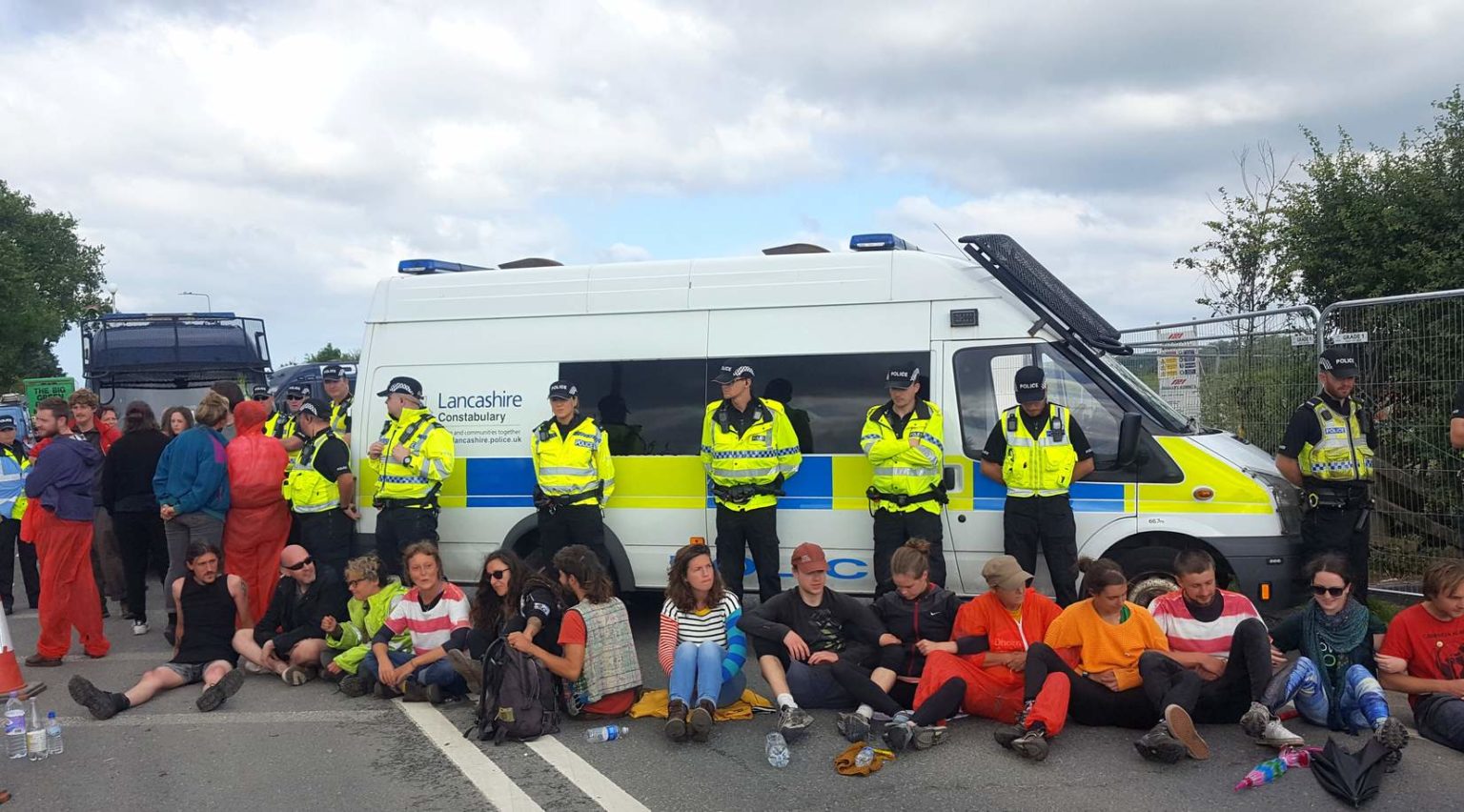Local councils, police, and companies are increasingly trying to restrict how anti-fracking campaigners can protest shale gas development in Britain.
Over the past two months, there have been three separate instances of new rules being developed to limit protesters’ activities.
The most widely publicised is the recent interim injunction against anti-fracking protesters granted at the end of July to INEOS, which has licenses to explore for shale gas across the largest area of any company in the UK.
Meanwhile, this month police set limits on fracking protests in North Yorkshire where Third Energy plans to begin drilling. And in Derbyshire, the local council is considering new rules to restrict the behavior of protest camps.
The news comes ahead of this week’s hearing at the Royal Courts of Justice in London where INEOS will try to make its injunction permanent. Anti-fracking campaigner Joe Corre, will be opposing the injunction.
INEOS’ national injunction covers eight different locations including two proposed shale gas sites in Derbyshire and Rotherham, along with company offices and property belonging to site owners. It also covers routes to the proposed sites and extends to INEOS’ supply chain, including any depots, equipment, people and operations.
The interim injunction was granted on 31 July just as a month of action was coming to a close in Lancashire where local residents and anti-fracking campaigners protested against Cuadrilla’s plans to explore for shale gas in the area.
While the injunction claims to be addressing unlawful protest activities it also targets so-called slow walking – where protesters try to delay delivery vehicles – which has previously been ruled a lawful form of protest by some district judges in West Sussex and Surrey.
According to the INEOS website, anyone who breaches the order by “interfering with lawful activities” would be “held in contempt of court and may be imprisoned, fined or have your assets seized.”
Limited Protest Hours
At the beginning of September, police in North Yorkshire also implemented new rules to restrict protests to specific times of the day. Third Energy plans to begin operations as early as 13 September and could be fracking in the area before the end of the year.
While slow walking by protesters will still be allowed, this will be restricted to 20-minutes only at two designated spots near the site, once in the morning after 9am and once in the afternoon.
The new rules were announced by Superintendent Dave Hannan during a village meeting on 5 September.
Hannan, the head of specialist operations at North Yorkshire Police, also explained at the meeting that three CCTV cameras had been installed at “strategically important locations” on Kirby Misperton Lane near the fracking site.
He said: “Those cameras will be used to detect any disorder, any offences that may or may not occur. They also give us the ability to monitor what is happening on the road.”
At the same time, on 7 September Derbyshire council closed a two-week consultation on new rules to “restrict the behaviour of the camp occupants to legitimate peaceful protest only”. Over the past five months anti-fracking campaigners have been protesting drilling company PR Marriott in the village of Danesmoor.
Known as a Public Spaces Protection Order (PSPO), the rules would cover Danesmoor and parts of Clay Cross for up to three years the council website states.
Activities under consideration include camping or placing temporary structures (such as tents or caravans) on any open space and the recording or broadcast “by any means of video/audio/photographic footage of any individual and/or their vehicle which causes, or is likely to cause, intimidation, harassment or distress.”
Main image credit: Mat Hope/DeSmog UK CC 2.0 Updated 12/09/2017: The original by-line mistakingly attributed the article to Mat Hope, this has been corrected.
Subscribe to our newsletter
Stay up to date with DeSmog news and alerts






